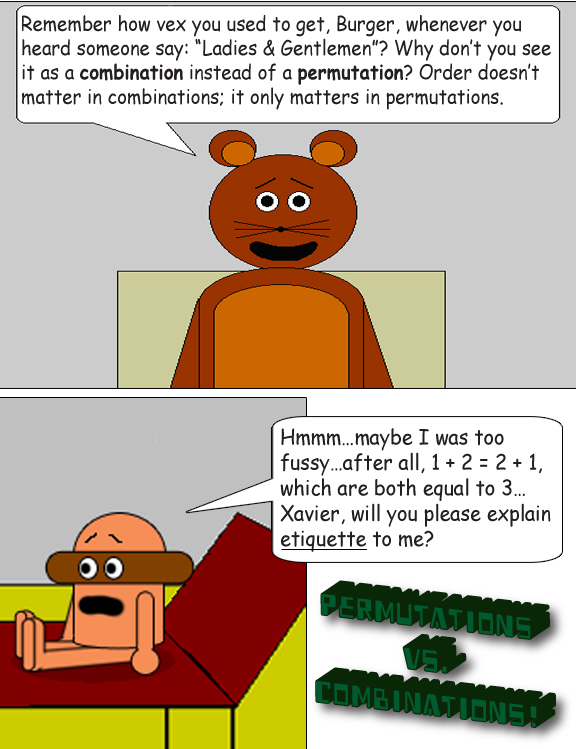
The 3 things mentioned in the title of this page have a lot to do with probability. Factorial numbers simply tell you how many possible ways that a specific number of objects can be arranged. An arrangement can also be called a permutation. And then there are combinations.
The number of possible arrangements (or permutations) for a specific number of objects is called the factorial of that number. For example, 1! = 1; 2! = 2; 3! = 6; 4! = 24; 5! = 120; 6! = 720. (The exclamation point is also the symbol for factorial in mathematics.) By the way 0! = 1 because there's only one possible way to arrange zero objects! It's a bit of a paradox since there's really nothing to arrange!

P.S.: Only whole numbers can have factorials.
In both of these, the factorial function is used but with a slight difference between them.
You can divide the Permutation Function by r! to get the Combination Function.
A permutation is a set of n objects taken r at a time with no repetition in a specific order, while a combination is a set of n objects taken r at a time with no repetition but rearranging the collected objects does NOT produce something different.
In the animations below, Penny Pincher chooses to grab 3 out of 4 pens in the cup with her toes! So 1 pen stays in the cup. There are 4 animations since C(4,3) = 4!/{3!(4-3)!} = 4!/{3!1!} = 24/6 = 4.
Observe each one closely. Which pen stays in the cup?
If you seen enough episodes or shorts of this cartoon series Blueworld Adventures, you may have noticed how the antihero of the Starring Trio Burger Meat Food used to complain about how announcers usually mention the ladies first before the gentlemen. (Etiquette says it's polite to let ladies go first, but Burger isn't the most polite character!) However, since it's a union, which is a combination, order doesn't matter; so "Ladies & Gentlemen" is the same as "Gentlemen & Ladies". Order seems to matter in etiquette; Burger always questioned its permutation!

P.S.: There's a puzzle game on the Puzzles & Games Page that is related to the Combination Function: "Sex Probability Puzzle". Play it for more details.
Back to Index Page Back to Math Trick Menu
© Derek Cumberbatch